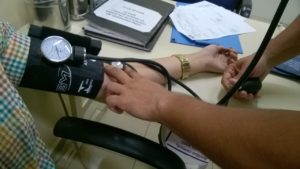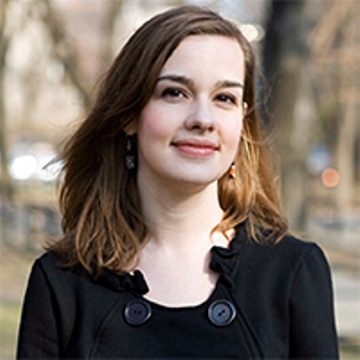- Calls to this hotline are currently being directed to Within Health, Fay or Eating Disorder Solutions
- Representatives are standing by 24/7 to help answer your questions
- All calls are confidential and HIPAA compliant
- There is no obligation or cost to call
- Eating Disorder Hope does not receive any commissions or fees dependent upon which provider you select
- Additional treatment providers are located on our directory or samhsa.gov
Eating Disorders are Color Blind: Listening, Correcting Imbalances, and Offering Hope – Part 3

This is Part 5 of this 5-part series where Chief Executive Officer of the National Eating Disorders Association (NEDA), Claire Mysko, MA is speaking with Dr. Mazella Fuller and Karla Mosley on their individual experiences as African-American women in the eating disorder community and cultural differences in mental health treatment.
Claire: I also want to ask generally about the attitude toward mental health treatment, do you see a cultural difference?
Dr. Fuller: Well, I think, because historically in our community, there has not been any self-care or any mental health support because there is a stigma.
There are some who find that through their faith and spiritual advisors. I do think that the view of mental health is improving and people want just to be well and flourish.
It is not so much a stigma of, “I don’t want to see a therapist and be well,” but more, “I know the history and what has gone wrong such as Tuskegee or eugenics.”
These create suspicion, skepticism, and fear about “will I be taken seriously?” or “are you just curious about me but don’t want to help me.”
I think that people want to be treated with respect and dignity and be treated as a human being. When we do that as clinicians and providers, people will feel comfortable to sit down and work with you.
Klara: Absolutely, I think access to really quality care and care that feels safe is important.
Claire: That’s a really important point. I want to ask a question about language and terminology. Sometimes, even the terminology around eating disorders can be a barrier.
Dr. Fuller, I wonder if you can speak to this from your clinical experience and then, Karla, if you can respond from your experience, too. Do we need to be thinking about how we are communicating about eating disorders, is there something in the language that is a barrier?
Dr. Fuller: I agree, I am not an M.D., so, I don’t have to make diagnoses for insurance and deal with reimbursement and all of that.
I think it is something about gender, women, and disorders, so, I tend to shy away from those more diagnostic DSM categories and stick with eating problems, eating challenges, and eating issues.
When we’re talking about advocacy and activism, it is important that women support women. Men absolutely do this work, and I don’t want to discount that, but, when I go to conferences, it is a large percentage of women.
We all need to be able to talk about what type of language we are using and how we can improve that. We need to think about what we are saying and open up the conversation further to marginalization, privilege, triggers, etc.
 Karla: I agree, I also think in receiving treatment, it is important for someone to feel like they have a practitioner that is aware of how their language could be triggering and having the relationship with their practitioner that they can say “that doesn’t work for me.”
Karla: I agree, I also think in receiving treatment, it is important for someone to feel like they have a practitioner that is aware of how their language could be triggering and having the relationship with their practitioner that they can say “that doesn’t work for me.”
The reason I didn’t want to receive recovery at first was that my eating disorder was such a secretive part of my life and speaking it out loud was a barrier.
To feel safe enough to speak freely is really important. I think, if we have practitioners that can speak to people as on a human level, it opens up the space for the person receiving treatment to respond from their truth.
Claire: Thank you.
Karla, is there anything from your experience as someone who has had personal experience with an eating disorder in recovery, were there resources that were particularly helpful to you or any ambassadors or influencers that made a difference in your recovery?
Karla: Well, I’m really excited about Dr. Fuller’s book. For me, I found my own way because I needed it so badly. I hung in there because I was desperate.
I’m excited that the conversation is being extended to black women and women of color because, as I have shared, my mom has struggled for years. I think that is the biggest barrier to her receiving recovery.
Aside from her personal stuff is her not feeling comfortable in a group, feeling embarrassment and like she can’t be herself without feeling judgment from her white counterparts. To even be in a space where her practitioner understood her would be incredibly helpful and add to healing for many people.
Claire: Thank you for sharing that. Certainly, I think that one of the biggest things we have touched on clearly is the need for education and training of clinicians is critical.

From NEDA’s perspective, the goal is to continue, as you said, doing the work and increasing awareness and helping people connect to those practitioners who have that expertise and compassion.
Everyone deserves recovery, and it is important to get that message out there and connect people to the resources that are quality and will reflect their experiences will help.
I’d love to give you both an opportunity to share any last thoughts.
Dr. Fuller: I wanted to extend gratitude for all of the panelists, NEDA, the participants, for placing value on this important message and issue with black women and eating challenges.
I am happy to be a part of this.
Karla: I feel similar gratitude, thank you for inviting me into the conversation of really astute and incredible people in the field and thank you for doing the work in being interested in helping people like me.
One thing that came up a lot in this conversation that I want to reiterate is the idea of accountability and using each other as resources.
There are people, such as Dr. Fuller, who have been doing this work for years and are accomplished and have a vocabulary and knowledge.
Do not be afraid to reach out to those people in this area or to say “I don’t know.” Humility and willingness to learn are really key.
Please See:
Eating Disorders are Color Blind: Listening, Correcting Imbalances, and Offering Hope – Part 1
Eating Disorders are Color Blind: Listening, Correcting Imbalances, and Offering Hope – Part 2
Source:
Virtual Presentation by Claire Mysko, MA, Karla Mosley, and Dr. Mazella Fuller in the December 8, 2018, Eating Disorder Hope Virtual Conference III: Blasting Through Bias: A Deep Dive into Underserved Populations and Global Issues 2018
Please visit the Virtual Conference page for other presentations.
Authors:

Claire Mysko, MA is the Chief Executive Officer of the National Eating Disorders Association (NEDA) and an internationally recognized expert on eating disorders, body image, and media literacy. She is the author of Does This Pregnancy Make Me Look Fat? The Essential Guide to Loving Your Body Before and After Baby (2009) and You’re Amazing! A No-Pressure Guide to Being Your Best Self (2008) an award-winning self-esteem manual for girls.
Mysko previously served as NEDA’s Chief Operating Officer, Director of Programs, and as a consultant on Proud2Bme and Proud2BMe On Campus, NEDA’s youth platforms. Prior to joining NEDA, she served as the director of the American Anorexia Bulimia Association and spearheaded the development of pioneering online communities at Girls Inc. and SmartGirl.
During her tenure at NEDA, Mysko has overseen a rapid expansion in both reach and programs, including the implementation of an evidence-based eating disorders prevention program in New York City schools, initiatives to bust prevailing myths about eating disorders, and the cultivation of key relationships with companies including Aerie, Crisis Text Line, Facebook, Instagram, and Pinterest. Learn More About Claire Mysko
Karla Mosley – Bio not provided
Dr. Mazella Fuller – Bio not provided
 About the Transcript Editor: Margot Rittenhouse, MS, NCC, PLPC is a therapist who is passionate about providing mental health support to all in need and has worked with clients with substance abuse issues, eating disorders, domestic violence victims, and offenders, and severely mentally ill youth.
About the Transcript Editor: Margot Rittenhouse, MS, NCC, PLPC is a therapist who is passionate about providing mental health support to all in need and has worked with clients with substance abuse issues, eating disorders, domestic violence victims, and offenders, and severely mentally ill youth.
As a freelance writer for Eating Disorder and Addiction Hope and a mentor with MentorConnect, Margot is a passionate eating disorder advocate, committed to de-stigmatizing these illnesses while showing support for those struggling through mentoring, writing, and volunteering. Margot has a Master’s of Science in Clinical Mental Health Counseling from Johns Hopkins University.
The opinions and views of our guest contributors are shared to provide a broad perspective of eating disorders. These are not necessarily the views of Eating Disorder Hope, but an effort to offer a discussion of various issues by different concerned individuals.
We at Eating Disorder Hope understand that eating disorders result from a combination of environmental and genetic factors. If you or a loved one are suffering from an eating disorder, please know that there is hope for you, and seek immediate professional help.
Published on March 14, 2019.
Reviewed & Approved on March 14, 2019, by Jacquelyn Ekern MS, LPC
Published on EatingDisorderHope.com

The EatingDisorderHope.com editorial team comprises experienced writers, editors, and medical reviewers specializing in eating disorders, treatment, and mental and behavioral health.

